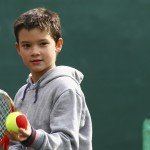Kid’s Sports Team Clique’s – Good or Bad?
 There is a lot I can say about this and honestly I am not sure how it’s going to come out but I am rolling with whatever direction it does. This question depends on who you ask. Kid’s who are ‘in’ a clique have a sense of belonging and acceptance. They are generally glad to be on the inside. Kid’s who aren’t, feel like they are outsiders which can lead to a sense of isolation and sadness. Coaches aren’t prepared to deal with all of this and parents (usually) think it’s survival of the fittest. Clique’s are always going to form. Human beings are joiners and we want to belong and feel accepted by our peers. What’s important is that you understand the good and bad about them and how to help your child maneuver through the sometimes muddy waters of their existence.
There is a lot I can say about this and honestly I am not sure how it’s going to come out but I am rolling with whatever direction it does. This question depends on who you ask. Kid’s who are ‘in’ a clique have a sense of belonging and acceptance. They are generally glad to be on the inside. Kid’s who aren’t, feel like they are outsiders which can lead to a sense of isolation and sadness. Coaches aren’t prepared to deal with all of this and parents (usually) think it’s survival of the fittest. Clique’s are always going to form. Human beings are joiners and we want to belong and feel accepted by our peers. What’s important is that you understand the good and bad about them and how to help your child maneuver through the sometimes muddy waters of their existence.
As I mentioned above one of the good thing about cliques is that a child feels like they belong. The problem is many times it’s a false sense of belonging. Kids are in and out of cliques all the time based on who’s in charge and whether or not your child follows the cliques social mores to the tee. One day, you’re in and the next you’re out! Your child may be in today which gives them a sense of belonging but if they don’t do what the clique dictates can just as easily be out tomorrow. This brings up another challenge with cliques – kids can’t be themselves. If you are in a clique you have to act, talk, dress, etc. the way the clique dictates. Kids are unable to form their own identity which becomes hugely problematic as they get older. This is one of many reasons so many adults ‘care what people think about them’. The problem is we can’t live up to other people’s expectations nor should we. We need to be OK, internally, with who we are. Kids who were in the clique and then not in the clique then start feeling bad about themselves, many continue to work on figuring out how to get back in and others get angry and revolt. None of which are a good thing.
I also mentioned above how kid’s who aren’t in the clique (who have gotten pushed out of the clique) feel like outsiders. This can have a huge impact on developing self-esteem. Why don’t those kids like me? Are they talking about me? Why are they all starting at me? This can also have an impact on whether or not a kid joins a team and stays on a team. Some of the reasons kids join teams if fun, social aspect and acceptance. If they don’t get these things the likelihood at a young age that they’ll be confidently strong enough to handle it is debatable. But, my child is not part of a clique and remains on the team. Some kids will ‘deal with it’ because they want to play sports but that doesn’t mean that they aren’t impacted by it.
Your kid is quiet and shy but excellent at basketball. Her freshman year she tries out for the JV team. The team is made up of 10 sophomores who have been playing together for 2 years. They all know each other and don’t seem very accepting that an outside, newbie is planning to join the team. How do you think that impacts your kid? She comes home after the first day of tryouts feeling alone and defeated, do you pull her out? She wants to quit, do you let her? She is down on herself and is struggling to hit her shots, how do you help her?
The team environment is supposed to help build confidence, identity, teamwork, discipline, decision making but cliques can erode those things. How does a team work together if there are insiders and outsiders? Help your kids to understand that everyone should be valued. This doesn’t mean they have to be friends with everyone but that everyone has a role. I also believe that there are also some old social mores that kids should learn: hold the door for people, say hi and thank you and always say hi and introduce yourself to new people.
I would love to hear your thoughts!
Dr. Michelle
Photo cred: en.wikipedia.org



